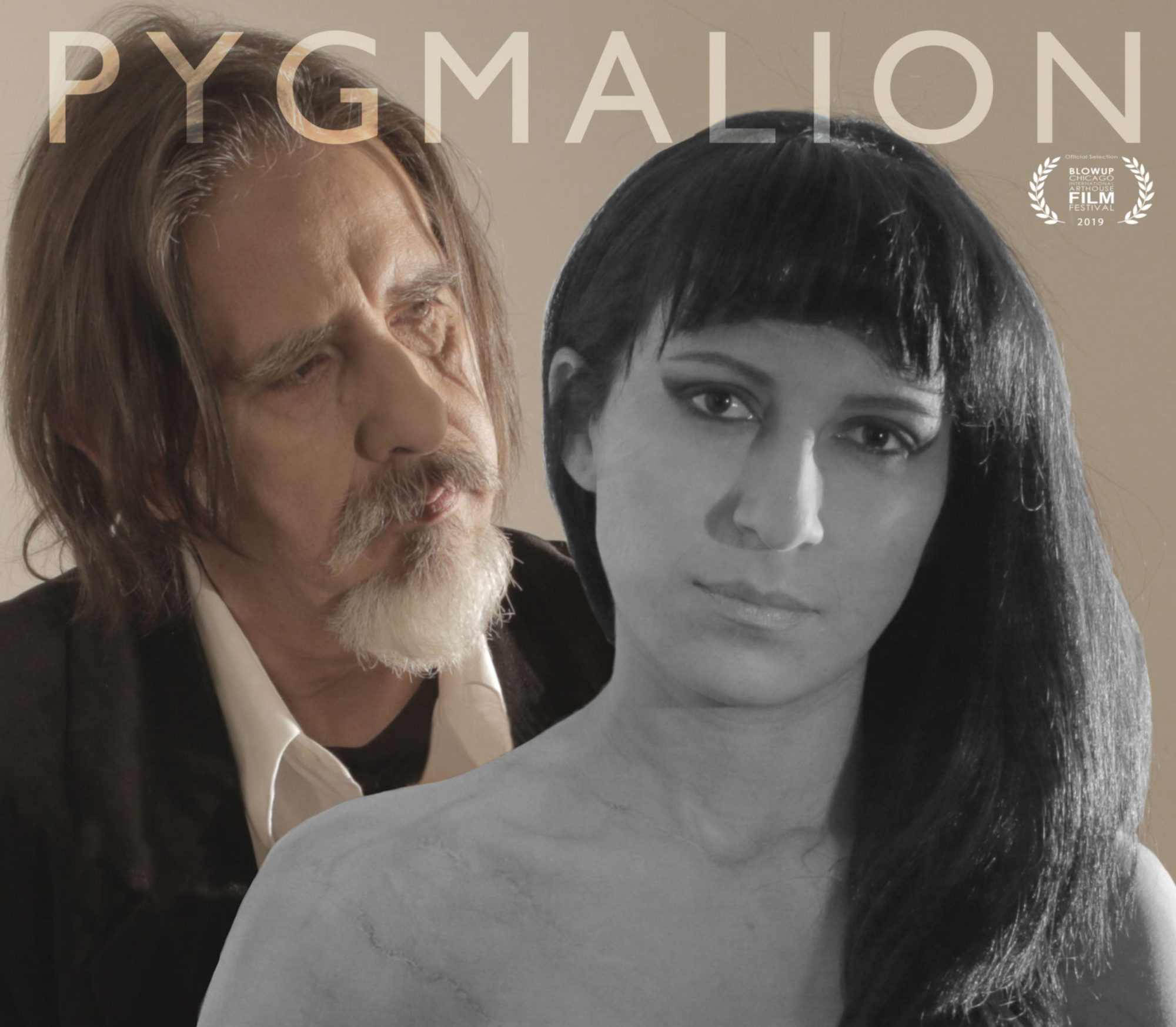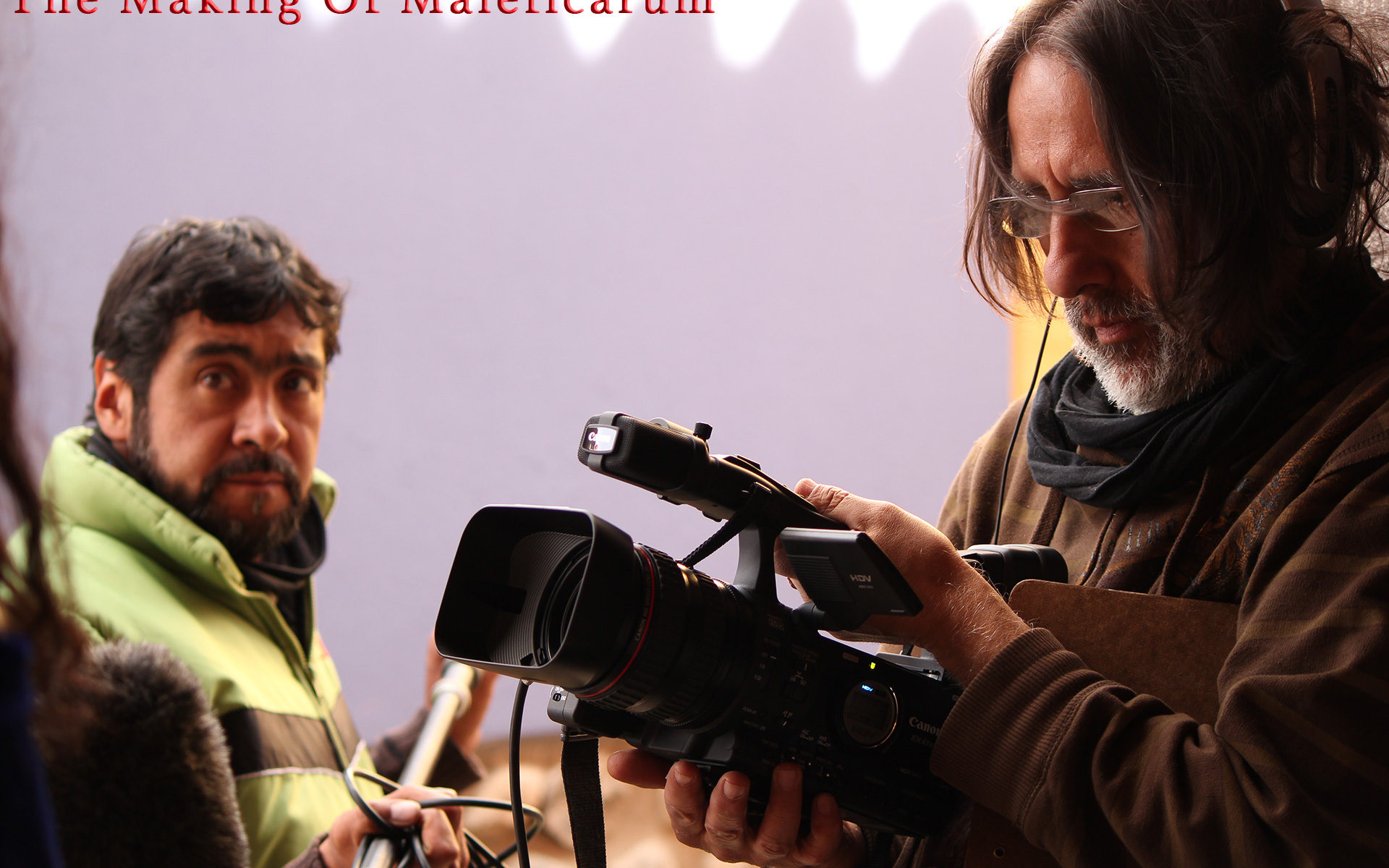by Mike Haberfelner
July 2012
I know we have talked about it before at length [click here], but could you bring us up to speed once more: Your film Maleficarum, what is it about?
It’s the story of two young women. Mariana de Castro, a disposed widow, and Francisca de la Cruz, the young heir to great fortune and lands. They are lovers and their relationship is not a secret in the town. A group of young women confront Mariana in the streets and it ends in a shoving match that involves Francisca. This lame street event is used by the Inquisitor to take over the fortune and lands of the orphan. The women fall in the hands of the Santo Oficio de Lima, also known as the inquisition. The film centers in their torture and the damming testimonies of the townsfolk.

Maleficarum has recently become the centerpiece of a censorship controversy. How did this start actually?
It started with a letter. We released the film in October 2011, on the 31st to coincide with Halloween. It was our intention to have a premiere at the Cinemateca, a place that was open to our movies in the recent past, but we couldn’t get that date. Between October and February of this year we held discussions, conversations, negotiations to finally have a theatrical release date there. We finally agreed to have it sometime in March or April and gave them the film for evaluation; I was assuming that they wanted to see if the film held technically, and to rate it. The people at the Cinemateca held a preview screening of Martyr before its formal release, but they didn’t do that with our other films: Sirwiñakuy and Nocturnia. All three films were shown, Nocturnia and Martyr were not very successful while Sirwiñakuy ran for 5 months.
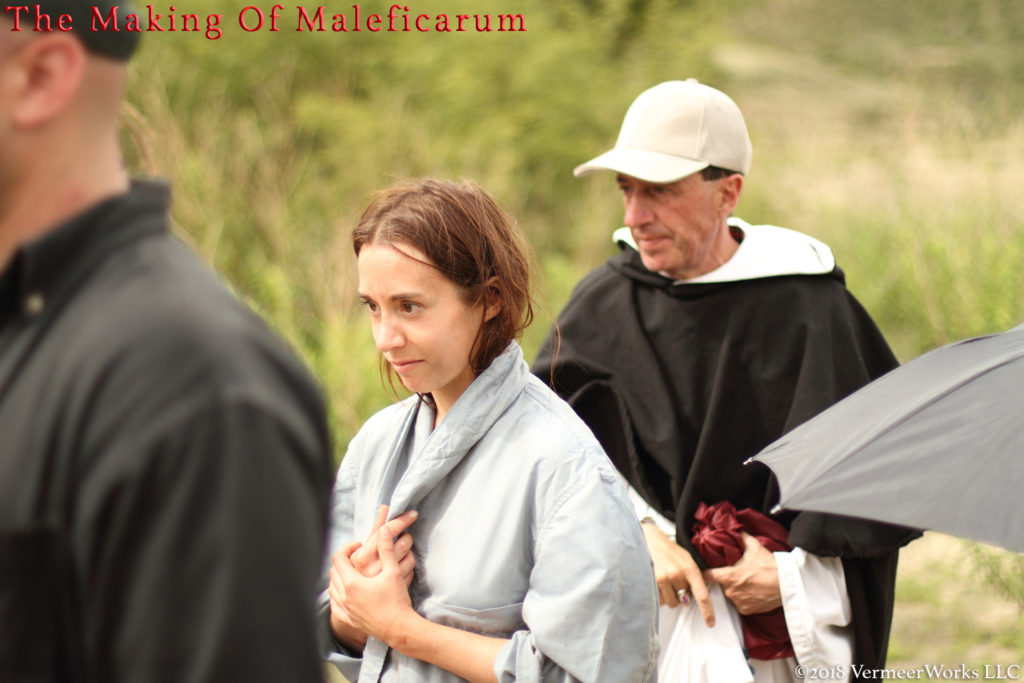
I was waiting for a letter with a date for the screening. Instead I got a letter saying that the“commission of evaluation” decided not to show the film because of its “explicit language” which I read as censorship. Martyr and Sirwiñakuy were just as explicit and were shown. LA Zombie, banned in Australia because of its extreme explicit content, was shown at the Cinemateca.
So, why was Maleficarum censored? I wrote an open letter to the director of the Cinemateca, a newspaper picked it up and all hell broke loose. Not long after the letter one of our people had a chance encounter with the programmer at one of the multiplexes here. She told him about Maleficarum and he said simply “we’ll show it, bring it.” When she told me the great news I asked Beto to contact the other multiplex to offer them the film as well and they also agreed to show it. Suddenly, the “forbidden film” was opening nationally and in big commercial houses.
We submitted the film to the people who do the rating of films here and they came up with R (18 years and older). So, the arguments that the Cinemateca had were deflated with this new development. The papers picked it up too. The issue was no longer the film, but censorship.
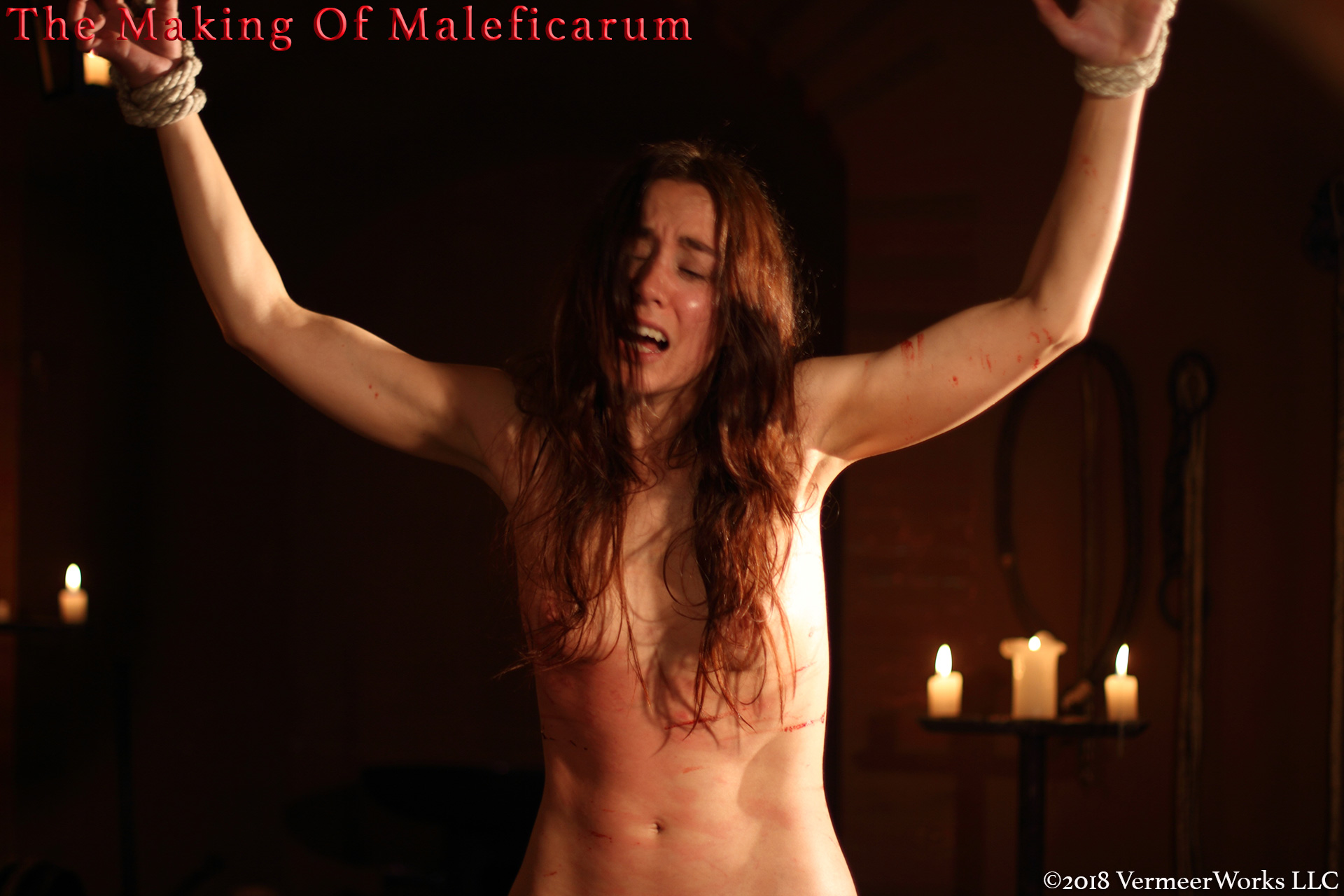
What can you tell us about the actual public debate “Jac Avila vs Cinemateca”, and how were the reactions to that one?
We began the press campaign to promote the film and a couple of the papers mentioned the prior censorship, I was also asked, in a TV interview, about this issue. Facebook was buzzing with the talk of the Cinemateca refusing to show it because of content. Finally, one journalist wrote in his blog about this in very strong terms. He said that I wasn’t his favorite director but that it was an outrage that the Cinemateca refused to show the film because of its content and that he didn’t need a “commission” to tell him what to see and what not to see.
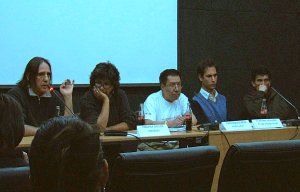
Debate at the Cinemateca
That night I received a call from the Cinemateca inviting me to a debate on censorship. I accepted.Just before the debate a review appeared in a paper, trashing the film – there’s a story behind it, but that would take long. The day of the debate I was interviewed on a radio station. The interviewer said he didn’t agree with censorship but then he proceeded to attack the film. I said to myself, they’re setting me up for tonight. However the debate was very civil.
While making Maleficarum, you must have sensed that you touch some, shall we say, sensible topics. Did you ever expect any real controversy of that kind though?
I was expecting to be trashed by the critics, yes, we were trashed with Sirwiñakuy, and Maleficarum is a much more explicit, harsh movie, but I did not expect it to become the eye of a big storm.
When I was making Maleficarum I could actually pinpoint all the areas of the film that would be under attack. However, I’m not afraid of critics, I don’t make films thinking of what they are going to say. As much as I love to be praised, I don’t take the possibility of negative criticism into consideration before embarking on a project. If I was concerned with the critics I would make different movies, crowd pleasers, comedies and I’m just not interested in doing that.
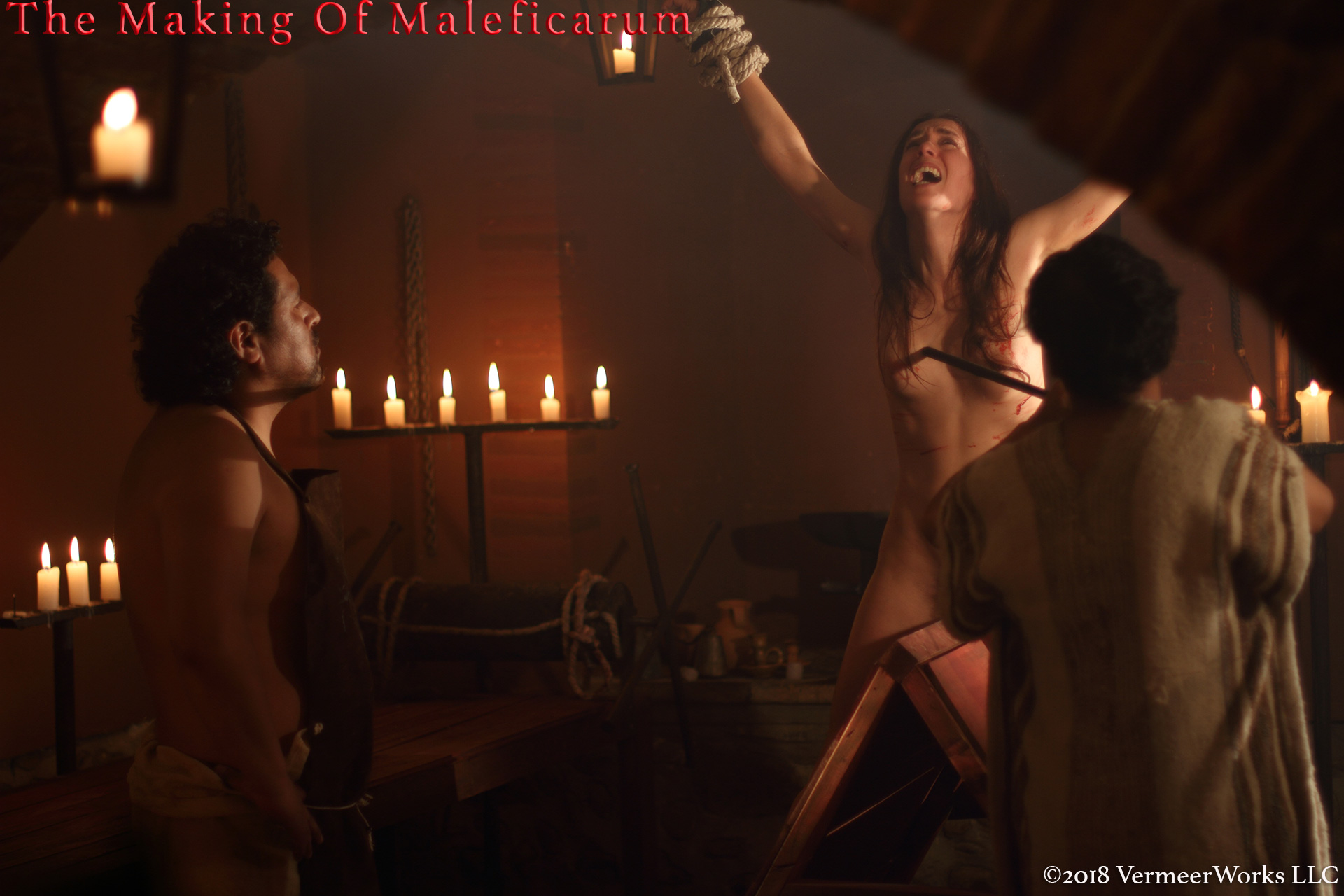
Do you figure that the fact that Maleficarum touched upon one of the darkest chapters of the history of the Catholic Church might actually have been at the root of this controversy?
No, I don’t believe the Church had anything to do with it, either directly or indirectly. In fact, the best interview we had was in a church-run TV station, they even screened our long trailer and apologized that they had to edit out two shots because of their morning audience. They edited out a shot of Amy and Mila kissing and one long shot of Amy on the Spanish Horse, but they showed the rest of the trailer.
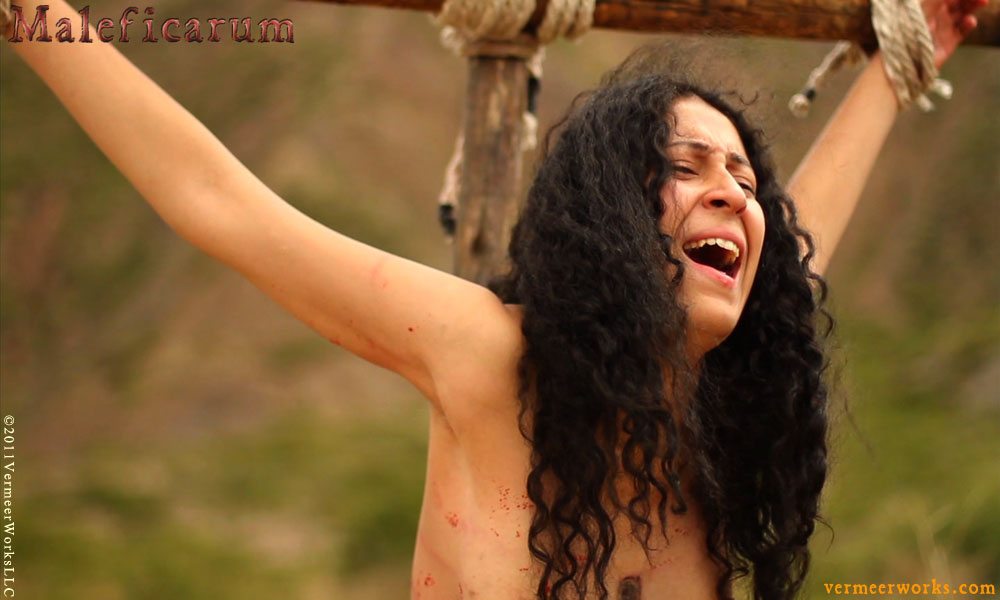
It’s always possible that a person in the committee had some church-based sensibility, but I don’t believe that the Cinemateca’s decision had anything to do with the Church. Bolivia is a Catholic country, but as in all Catholic countries, there’s a lot of flexibility in those who believe in it. Catholics, in general, are not ardent fanatics, they are just believers with a wide range of attitudes to everything including birth control and divorce. The country itself is going through a transition from a country with strong religious influence to one where church and state are separate. I believe the problem the “commission” had is the explicit tortures and nudity that are in most of the movie, and a couple of them might’ve been offended by it.
So where do you see the controversy go from here, and are you planning to take any steps, legal or otherwise?
There were some conclusions at the debate. There was one person who got up and said something illuminating. He said that censorship is against the constitution and even against many interamerican laws. He mentioned the case of The Passion of the Christ, Mel Gibson’s movie, which was banned in Chile, but the distributors took the issue to court and won. This man, who was a journalist, said: “I’m not suggesting that Jac calls a lawyer and sues the Cinemateca, but he could if he wanted too”.
I think that comment made some people very nervous. I wasn’t looking at them, but my crew was recording the event and we have the footage, I’ll have to see it.
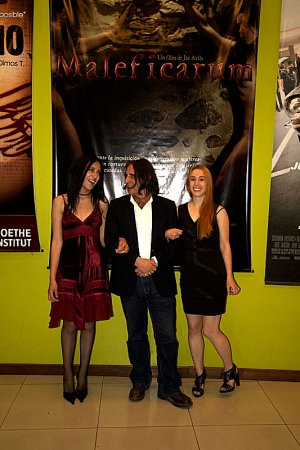
At the premiere
During the debate the Cinemateca reps, especially the director, tried to find a way out, they said that it was a mistake on their part to write“explicit language” on the letter and give the impression they were censoring it. They apologized for that to me. I accepted their apologies but I insisted that there shouldn’t be any commission censoring movies for whatever reason and it’s still cloudy to me the reason for their decision.
The debate is open now and as far as Maleficarum is concerned, I think it accomplished a lot here. It did well, within the limitations of the country, people went to see it and either hated it or loved it, so I don’t think there’s anything else I want to do. I want to move on.
In hindsight, would you have made Maleficarum any differently had you known about the controversy it has caused?
No. Maleficarum is what it is. I was very aware that it was not going to be well received by some people and I made it anyway. I made a film about torture, period. And torture is not pretty. Some people feel that the torture scenes are too long, and that’s an issue I can deal with. I can accept that for some people the torture scenes might be too long while for others they are not long enough.
One person said that he sees more violence in television, another said that the video games he plays are far more bloody. So, there will be opinions one way or another. The film is what it is.
Despite all the controversy, Maleficarum is having a pretty successful run in Bolivia, right? What can you tell us about public appreciation of your movie, and did the success at all come as a surprise to you?
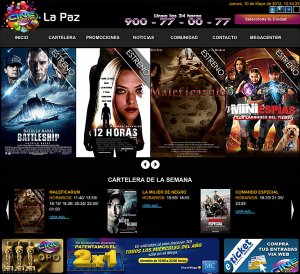
Maleficarum takes the multiplex
I’m not sure if the success is despite or because of the controversy. I cannot be sure of that. The people at the premiere, with some exceptions, loved the movie and we received some good feedback and comments. But we also got a lot of awful comments and one reviewer attacked the film. Like the radio interview I mentioned before, the interviewer after proclaiming his belief in free speech, proceeded to attack the movie and me personally, calling me the Ed Wood of Bolivia [Ed Wood bio – click here]. I found that funny. Later I found that he has a big connection with the Cinemateca. I felt that they were somehow preparing the stage to pulverize me at the debate.
What I didn’t expect was that at the debate, the one person who I thought would drive the nail into the issue actually compared me to DH Lawrence, making it clear that she didn’t like the movie, not because it was a bad movie but because she did not understand the reasons behind the lengthy scenes of torture. That was cool. Another person in the debate, a filmmaker, said that he didn’t see any pornography in the film, eroticism, perhaps, but not pornography. I’m surprised, however, that the film sold as many tickets as it did. I was expecting to be in the theaters for a week, but we were number four in the ticket sales and that is huge for us because we were up there with Avengers, Battleship and Titanic 3D, all blockbusters.
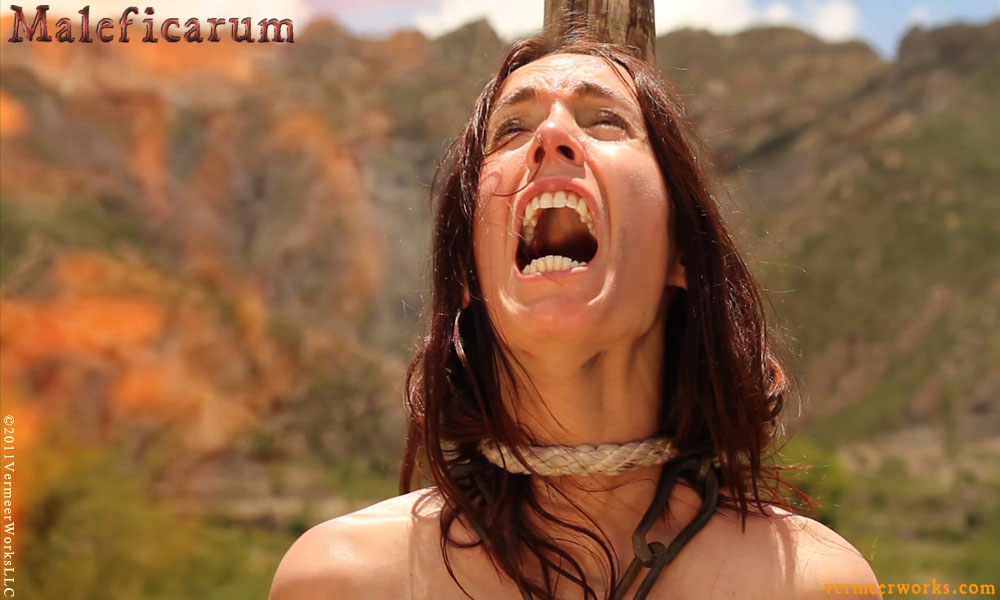
Officially, Maleficarum is rated “PG-13” (downgraded from “R”), right? What can you tell us about the Bolivian ratings system as such, and was it at all difficult to get a proper rating for the film?
Movie theaters here go by the MPAA rating that comes with the movies. PG, PG 13 etc. There aren’t too many Bolivian movies so this isn’t something that has some kind of fixed criteria. The people who rate movies here are from the culture department of City Hall. They don’t rate all movies, only those sent to them when the theaters request it. They rated Maleficarum the equivalent of R, but it’s only a recommendation, not a rule. The movie theaters can abide by that recommendation or not. One of the multiplexes lowered that rating to the equivalent of PG 13, and the other, after the first week, lowered it too. I guess people here feel that young people are exposed to a lot nudity and violence on television, comics and video games so an “explicit” film like Maleficarum is actually kind of lame.
Leaving Maleficarum behind for the moment – what can you tell us about current and future projects of yours, and will that controversy at all influence the tone of your films in one way or another?
I don’t think this experience will influence my future work. The tone of my future movies will be exactly as I want them to be. In Dead But Dreaming, for instance, I have some very explicit scenes and I won’t change that at all. But I won’t make it more explicit either. I won’t tone down or up. I’ll do what I believe the film needs for the story to be told. I like realism in fiction and I stick to that. I’ve been labeled a “polemic” film director and I’m sure that this label will stick for a while, maybe one day I’ll make a feel-good movie, maybe not. I’m fortunate that I make a living making movies and it’s not only me, Amy Hesketh [Amy Hesketh interview – click here] and 4 other people make a living with our films, not just mine, of course.
The interviewer at the radio station actually sneered when I said that my films put the food on the table. His comment was “Bolivian films don’t make that kind of money here.” I had to make clear to him that I make the money outside of Bolivia because it’s true, in Bolivia you can’t recover the investment even in if your film is very, very popular.
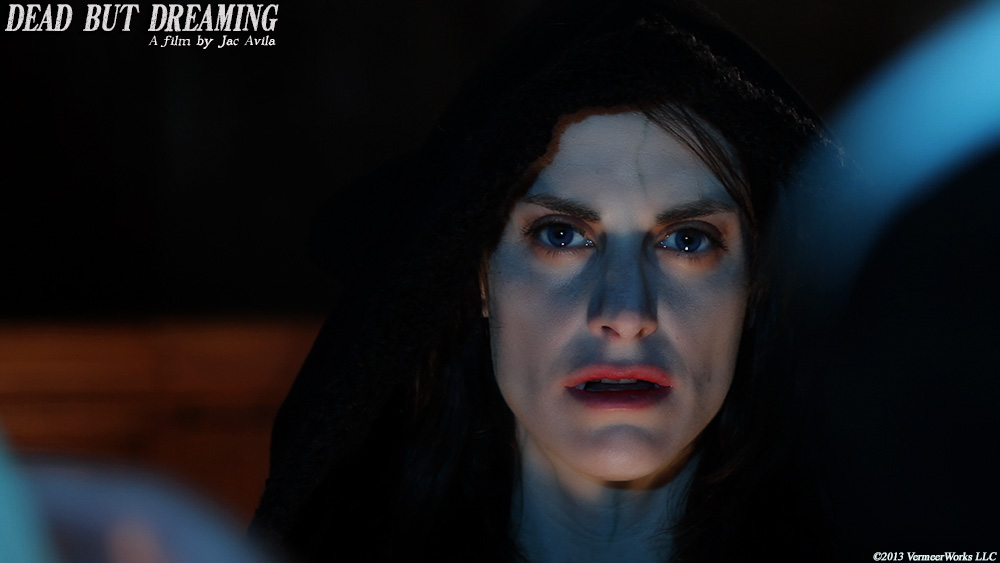
Anything else you are dying to mention and I have merely forgotten to ask?
I don’t believe in censorship of any kind. The movies I make will have a hard time getting into theaters in a lot of places, even in some liberal countries like France. I find that Bolivia is a far more liberal country than most and showing Maleficarum in multiplexes wasn’t a big deal, after all. I wonder if that would happen in the US. I wonder if Maleficarum could find its way into a multiplex.Films like Antichrist get to be shown in Art Cinemas. So, the censorship by the Cinemateca was very, very strange to me. I see it more as a personal reaction by one or two people there which shouldn’t happen. The Cinemateca should be open to all movies.
Thanks for the interview! By the way, if this interview at all got you interested, you may want to get the movie from here: http://movies.vermeerworks.com
Find Jac Avila on (re)Search my Trash
Jac Avila at the amazons … amazon.com
Your website, Facebook, whatever else?
http://facebook/maleficarumthemovie
https://www.facebook.com/jac.avila
© by Mike Haberfelner
